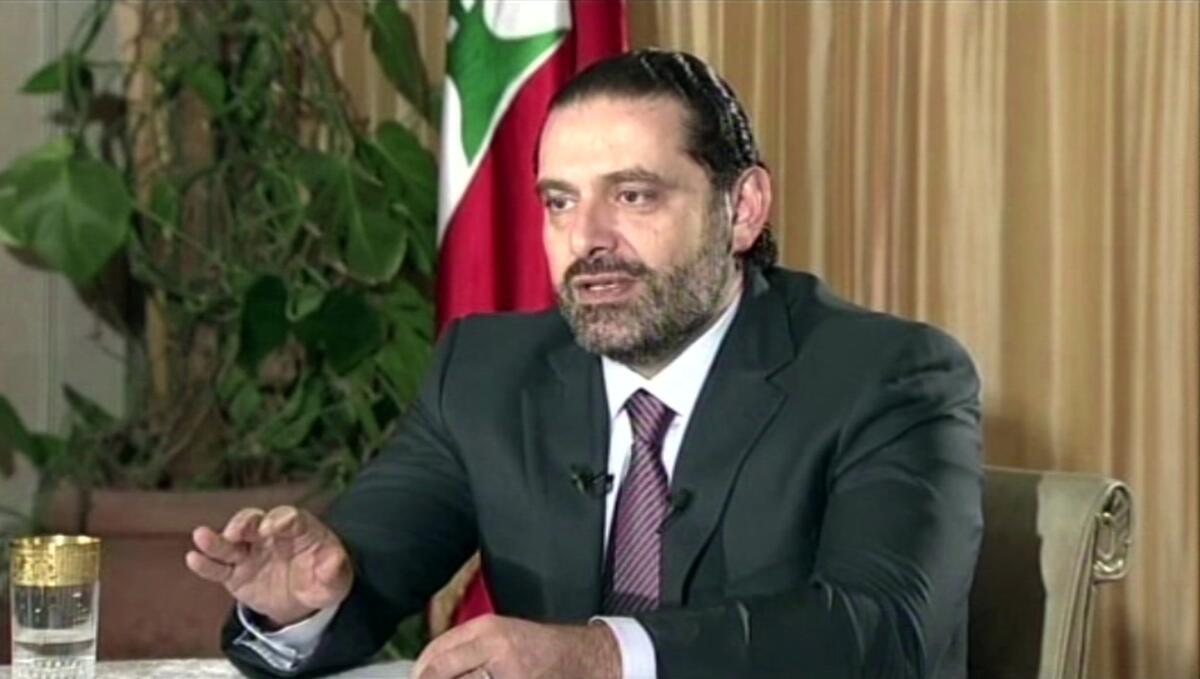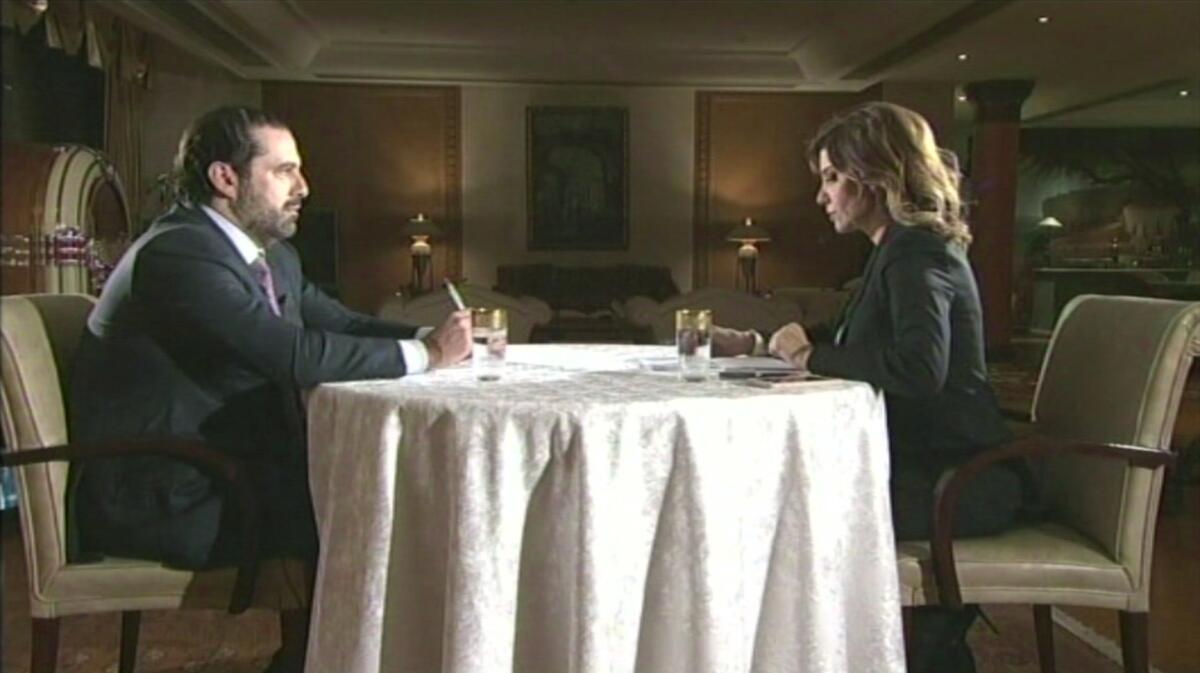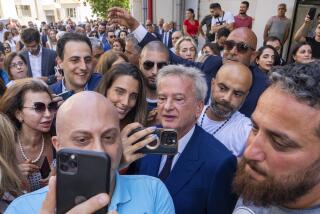Lebanese prime minister’s TV interview does little to clear up mystery around resignation

- Share via
Reporting from Beirut — It was an appearance that many Lebanese hoped would explain the week’s bizarre events, in which Prime Minister Saad Hariri flew to Saudi Arabia, announced his resignation and triggered widespread speculation that he was being held against his will.
Instead, Hariri’s televised interview Sunday, his first since his surprise resignation, only added to the confusion that has swirled around him for the last eight days.
In the live interview from the Saudi capital, Riyadh, with his own party’s Future TV, Hariri said he would return to Lebanon “not in a matter of weeks or months,” but in “two or three days.” Although his resignation “was not according to the usual ways,” it was a “wake-up call” for the country that he hoped would be a “positive shock.”
“There was data I discovered … that we are going somewhere where I need to save the country,” Hariri said, without elaborating.
He also insisted that, contrary to rumors, he was a free man but was taking steps to protect himself and his family from danger.
“If you wanted me to come back, I could do so today,” he said to Paula Yacoubian, a Future TV talk show host who was reportedly informed of the interview at the last minute and traveled without her crew to Riyadh.

Hariri’s words come eight days after he stepped down from a national unity government, accusing Iran of destabilizing the region and warning of an imminent danger to his life. But he had shown little signs of distress before his announcement, leading to the speculation that he was detained by the Saudis against his will.
Like his resignation speech Nov. 4, much of the interview was a broadside against Iran and Hezbollah, the Iranian-backed Lebanese Shiite political party and armed faction. That duality was a sore point for Hariri, who said he was not “against Hezbollah in its political meaning, but Hezbollah does not have the right to ruin Lebanon.”
Hezbollah dispatched its cadres in 2012 to neighboring Syria to bolster troops loyal to Syrian President Bashar Assad, who at the time was fighting a pitched battle against opposition rebels supported by a slew of Western and regional countries, including Saudi Arabia.
Yet perhaps the real source of Hariri’s ire was in Yemen, where Riyadh has accused Iranian and Hezbollah operatives of working with Houthi rebels. On Nov. 4, the Houthis launched a ballistic missile targeting the Riyadh airport. Although the missile was intercepted, the resulting escalation has plunged Lebanon into the fight between Saudi Arabia and its archrival, Iran.
Hariri, who holds both Lebanese and Saudi Arabian citizenship, left no doubt which side he was on.
“The problem is … a nation called ‘Iran’ that is interfering in Arab affairs,” he said.
Although he spoke for more than an hour, many remained unconvinced that Hariri’s words were his own. In the run-up to the interview, Lebanese President Michel Aoun said that “the mysterious circumstances” surrounding Hariri’s stay in Riyadh made “his positions suspect” and not “of his free will.”
A number of channels, including Lebanese state TV, refused to carry the live broadcast.
Others insisted the interview was pre-recorded, this despite Yacoubian referring a number of times to current events (including an earthquake on the Iran-Iraq border) to prove it was live. Meanwhile, Hariri’s sideways glance at a man off-camera carrying a piece of paper, not to mention a moment when he almost broke into tears, kicked off a furious bout of speculation as to whether he was being coerced to speak.
“This interview was supposed to remove the confusion raised by Mr. Hariri’s resignation,” wrote syndicated columnist Abdel Bari Atwan in an article published after the interview. “But what happened was the exact opposite…. It provided the ammunition to make it flare up even more.”
Bulos is a special correspondent.
Twitter: @nabihbulos
ALSO
Yemenis grapple with border closures that could spur ‘largest famine in decades’
More to Read
Sign up for Essential California
The most important California stories and recommendations in your inbox every morning.
You may occasionally receive promotional content from the Los Angeles Times.











